Table of Contents
- President's corner
- ISHPSSB Virtual Meeting 2021: A Note from the Program Committee
- From the Membership Development Committee
- 2021 ISHPSSB Election Slate
- Philosophy and Climate Science (Cambridge University Press, 2018). An Interview with Eric Winsberg by Brian McLoone
- From the Site Selection Committee
- From the Operations Committee
- From the Communications Committee
- Studies C merges!
- Credits
President's corner
I'm sending this final Presidential postcard from my home in the north of England, where April showers have given way to May flowers (with showers too—it's England, after all!), and there's optimism in the air that the worst of the COVID-19 era is behind us now. I hope that, wherever you are, the situation is improving. As you'll see from the preview of ISH's July 2021 biennial conference below, our Program Committee has rightly put interdisciplinary reflections on “viral vulnerability” center stage, in a plenary session that is sure to be one of the many conference highlights.
When I took up the Presidency two years ago, it was no part of my vision for ISH that its next conference would be virtual. That said, along with many others, I had started to wonder about the ecological wisdom of jetting around the world for big international conferences. In the summer of 2017, at the Rio congress for the history of science (which met after ISH's meeting in São Paulo), I gingerly asked whether a virtual element might be included in the future—and was told, pretty firmly, that it was out of the question. Why should some colleagues be allowed to swan in electronically for their talks, from the comfort of their armchairs, while others took the effort and trouble actually to get themselves to the conference and participate in full?
A once-in-a-century pandemic has forced change at an extraordinary pace. It has also stimulated a lot of collaborative partnering and creative thinking. Our genial and generous host for our virtual conference, Cold Spring Harbor Laboratory, has made all the difference to our ability to put on a meeting on our customary large scale, and so keep faith with our Society's tradition of maximal inclusivity in its program. The hundreds of submissions that we received, from all over the world, and from scholars at all career stages, underscore the value of a conference that makes room for anybody who wants to join the best interdisciplinary conversation going on biology, past and present. It will be all the more of a pleasure for me to introduce CSHL's President, Bruce Stillman, before his welcoming address to conference attendees.
The challenge of re-imagining an ISH meeting for the online world has been considerable. For rising to that challenge so thoughtfully and energetically the Society owes large debts, above all to our Program Committee, chaired by Luis Campos and Roberta Millstein; to the committee formerly known as the Local Organizing Committee, chaired by Matt Haber; and to our Treasurer, Laura Perini. Hand on heart, we really do think, as promised back in December, that it's going to be a mind-bendingly, life-affirmingly awesome conference! There will be diverse sessions galore; plenaries on Darwin's Descent and on data sharing as well as on corona-related concerns; Happy Office Hours; skill-building sessions on everything from getting published to promoting your publications effectively on social media; a virtual banquet; and much, much more. If you've already registered, you're in for a treat. And if you haven't registered, you're in luck, because you can still do so here.
I hope that the Society's experience of going virtual this year will enlarge our sense of the possibilities for how an international community like ours can work. Balancing the virtues of in-person and online meetings will be a significant item on the “to do” list for my successor, Rachel Ankeny, along with the incoming class of Officers and Council members. Below you'll find the slate of nominees, courtesy of our Nominations Committee, chaired by Marsha Richmond, who'll shortly be administering the election. On behalf of the Society, let me offer my deepest thanks to everyone who is standing for election, and to everyone who, in whatever role, has served the Society over these past two years. It never ceases to amaze me that incredibly busy people nevertheless make time—sometimes quite a lot of it—to help keep ISH going. In a category of her own in this regard is Laura, who will be stepping down this summer after eight years (!) as a phenomenally capable, hard-working, and—to judge by ISH's healthy coffers—very prudent Treasurer. To Laura, from all of us: many thanks indeed.
At the conference, the General Meeting will be a chance to learn in more detail about the valuable work of the full range of ISH committees, not least in the important business of prize-giving. For the time being, you can sample their doings in the other items below: a report from our Membership Development Committee, chaired by Ingo Brigandt and Alan Love; an inaugural books interview from a new series sponsored by our Education Committee, chaired by Isabella Sarto-Jackson and Charbel El-Hani; reports from the Site Selection Committee and Operations Committee, both chaired by Rachel, as well as an important announcement from her about a development in the life of a major journal in our field, Studies in History and Philosophy of Biological and Biomedical Sciences; and a report from our Communications Committee, whose expertise has been indispensable in helping us spread the word about our 2021 conference.
See you there! And thanks again for this opportunity briefly to take the helm at a Society that I adore. It's been a joy.
Greg Radick
President
ISHPSSB Virtual Meeting 2021: A Note from the Program Committee
The biennial ISHPSSB 2021 meeting (13–20 July) is taking form! We already have several hundred participants registered so far from 36 countries, one-quarter of whom are tenured faculty and one-quarter of whom are graduate students, and with the other half reflecting a broad range of other scholars in our capacious field. With over one-third of the conference sessions self-identified as interdisciplinary, the spirit of ISH is alive and well!
We are also pleased to announce that plans are underway for a welcoming event with our hosts, Cold Spring Harbor Laboratory, a banquet reinvented for our virtual age, and three plenary panel sessions spread over the various days of the conference on timely themes (see below).
Please spread the word to your friends and colleagues, and encourage them to join us! As a virtual meeting, this is a great opportunity to showcase ISHPSSB to larger communities who might not otherwise travel for a meeting. And we are particularly keen to encourage greater participation from scholars in STS and the social studies of biology—two of our three plenaries this year are drawing on expertise in the many associated fields that we ISH folks call “the social studies of biology.”
Three planned panel plenaries
Revisiting Darwin's Descent (1871–2021)
- Organizer and Chair
- Thierry Hoquet
- Panelists
- Ross Brooks, Peter Godfrey Smith, Kimberly Hamlin, Christa Kuljian, Zuleyma Tang Martinez
A century and a half ago (1871), Darwin published The Descent of Man, and Selection in Relation to Sex. While the Origin of Species in 1859 was rather reluctant to get embroiled in the conundrum of human nature, the Descent had an immediate, passion-stirring, and complex impact on the history of human societies. The book was at once a major contribution to evolutionary science with the theory of “sexual selection,” a controversial book on human origins, and an account of racial diversity and sex differences. In this plenary panel, we will revisit the Descent's legacy as a node to investigate the much debated status of race, sex, and sexuality; the contorted problem of "human nature"; the meaning of behavior, intelligence, and morality; and the differences between human and non-human animals.
Kimberly Hamlin will take us from Eve to Women's Rights in Gilded Age America while Ross Brooks will offer us a glimpse into "Darwin's closet" and show us the rather unexpected queer sides of Darwin's Descent. Christa Kuljian will explore Darwin's “hunch,” that all humans share common origins in Africa. Zuleyma Tang Martinez will explain how Darwin's central concept of sexual selection was progressively elaborated into a “Darwin-Bateman-Trivers Paradigm”: a controversial theoretical and empirical entity which slowly took shape but was rapidly deconstructed. Finally, walking in Darwin's footsteps, Peter Godfrey Smith will delve into the evolutionary origins not only of our bodies but of our minds.
Open Science, Data Sharing, and Solidarity: Who Benefits?
- Organizers
- Ciara Staunton and Andrés Barragan
- Panelists
- Stefano Canali, Calvin Ho, Sabina Leonelli, Matthew Mayernik, Barbara Prainsack, and Ambroise Wonkam
- Chair
- Katherine Littler
Research, scientific progress, and innovation are increasingly contingent on access to large quantities of data. Owing in part to the value of this data, life scientists are encouraged—and often required as a condition of funding—to share their data. The “open science” movement has thus gained momentum and fosters the sharing of personal data, datasets, and research results. In such a context, research participants are encouraged to consent to the sharing of their genetic materials on the basis of solidarity (understood as support for a greater good), and researchers are encouraged to share their data on the basis that it can maximize the use of a valuable resource, and also lead to more reproducible science. It thus seems commonsensical that in our roles as citizens, patients, and researchers, we participate and share data on the basis of solidarity and the public interest.
Questions must nevertheless be asked about the benefits from this wide sharing of data. What are the public benefits that come with this public interest in data sharing? In a deeply unequal world, are these benefits globally felt, or are such benefits limited to certain socio-economic groups? What impact does open science have on research participants themselves and the communities they come from? How does open science affect researchers and their practices, particularly those coming from less well-resourced networks and institutions?
On the 25th anniversary of the Bermuda Principles on DNA Sequence and Data Sharing (1996), this plenary will consider these and other questions from a diversity of perspectives.
Viral Vulnerability: From Permissivity to Pessimism
- Organizer and Chair
- Eben Kirksey
- Panelists
- Sria Chatterjee, Alexander Gorbalenya, Steve Hinchliffe, and Anthony Ryan Hatch
Vulnerability to SARS-CoV-2 is best understood with perspectives from multiple sites and scales. In the barely perceptible realm of cells, vulnerability involves molecular dynamics. If there is a good fit between the coronavirus “spike” protein and a cell receptor called ACE2, then a fusion takes place, letting the virus inside the cell. Once the virus is inside the cell, viral proteins unfold and become lively. This panel will sidestep foundational distinctions between “life” and “non-life” to offer perspectives on the distributed viral processes that unfold in “permissive” host cells. The panel will bring a world-renowned virologist into conversation with a geographer, art historian, and critical race theorist. We will consider how particular configurations—of molecules, multispecies relations, as well as political and economic assemblages—produce opportunities for viral contagion. Vulnerability to infection depends on the state of a body before a virus arrives. Intergenerational processes, like racism and colonialism, transform human biology. Pre-pandemic inequalities in medicine and the food system—within the United States and on the global stage—created critical injuries that made structurally marginalized peoples especially vulnerable during the coronavirus pandemic.
Luis Campos and Roberta Millstein
Co-Chairs of the Program Committee
ISHPSSB Virtual Meeting 2021: A Note from the Virtual Local Organizing Committee
As everyone is now well aware, ISHPSSB 2021 is going to be held virtually. As we have all come to appreciate over the past year, this comes with tradeoffs. On the one hand, going virtual can increase accessibility, and the multiple modes of Q&A can encourage greater participation. On the other hand, not meeting in person presents challenges for some of the valuable yet informal parts of the meeting, including the opportunity to build your professional network, develop professional skills, and participate in the community building that comes from socializing.
Though we can't wholly replace this valuable side of the meeting, ISHPSSB 2021 organizers are aiming to include a series of Community & Skill Building sessions to help replicate some of that this summer. This includes skill-building sessions on constructing an effective poster, navigating academic Twitter, and engaging the public with your work, as well as sessions more focused on fun and community-building. We also plan to use social proximity software to host Happy Office Hours, and are even working out how to hold a virtual banquet! These should provide plenty of opportunities to catch up with old friends and to make new ones as you expand your professional network. We're excited and eager to have everyone join us at ISH 2021!
Matt Haber
Chair of the Virtual Local Organizing Committee
From the Membership Development Committee
The primary task of the Membership Development Committee has been to increase diversity, both in terms of the Society's membership composition and the meeting program structure. The ongoing pandemic, which is imposing personal and financial hardship, as well as the remote format of our upcoming ISHPSSB 2021 conference across various time zones, create challenges for meeting participation and engaging interaction among our membership. The Membership Development Committee remains mindful of its mandate during and beyond our July meeting.
Our committee will be involved in adjudicating the 2021 Interdisciplinary Organized Session Prize. This prize was originally proposed by the Membership Development Committee as a means of motivating the organization of more interdisciplinary sessions and increasing the representation of and interactions with historical and social studies of biology at our meetings. The prize was successfully launched at our 2019 meeting in Oslo and awarded to the session entitled “The concept of the environment in biology: Historical, philosophical, and sociological perspectives” organized by Tatjana Buklijas and Jan Baedke.
Our Membership Development Committee Meeting during the ISHPSSB 2021 conference period is tentatively scheduled for 16 July (Friday) at 10am EST. At the meeting we will take stock and consider what actions are needed to maintain and augment the diversity of our membership, especially in terms of global region, academic discipline, career stage, and other demographic factors. We plan to set up our own video conferencing session (details forthcoming) so that anyone can attend, regardless of whether someone was able to register for and attend ISHPSSB 2021. If you are interested in attending our committee meeting (or possibly joining our committee), feel free to contact one of the existing co-chairs, Ingo Brigandt (
Everyone is encouraged and welcome to convey concerns or suggestions to us before the Membership Development Committee meeting.
Ingo Brigandt, Vivette García Deister, and Alan Love Co-Chairs of the Membership Development Committee
2021 ISHPSSB Election Slate
- President-Elect
- Giovanni Boniolo | Matt Haber | Vassiliki Betty Smocovitis
- Council (three elected)
- Jaehwan Hyun | Abigail Nieves Delgado | Maria Elice de Brzezinski Prestes | Thomas Reydon | Judy Johns Schloegel | Ana Soto
- Program Co-Chairs
- Tatjana Buklijas & Jan Baedke
- Secretary
- Sarah Roe
- Treasurer
- Stuart Glennan | Don Opitz
President-Elect (listed in alphabetical order)
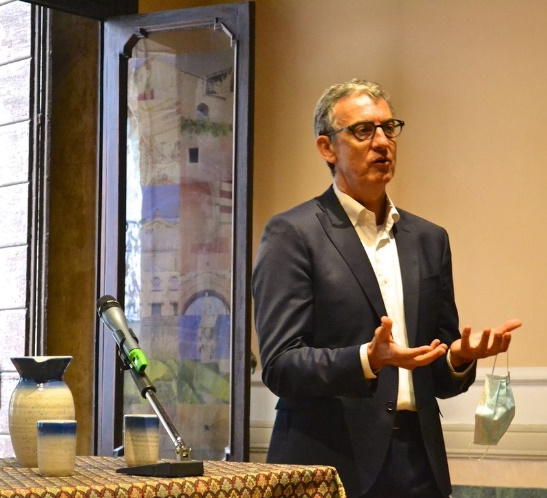 Giovanni Boniolo (Doctoral degree in Physics and in Philosophy) Full Professor of Philosophy of Science and Medical Humanities, Department of Neuroscience and Rehabilitation (University of Ferrara, Italy). Honorary Ambassador of the Technische Universität München. President of the Accademia dei Concordi (Rovigo, Italy). Scientific Director of the Civitas Vitae Research Centre (Padova, Italy). Co-Editor in Chief of History and Philosophy of the Life Sciences. Series Editor of Springer Briefs on Ethical and Legal Issues in Biomedicine and Technology. His work, now in the fields of the philosophy of biomedicine and its ethical implications, comprises 13 books (plus 12 edited books) and about 240 papers, most of which appear in international peer-reviewed journals. The two most recent books are G. Boniolo & V. Sanchini (eds.) 2016, Ethical Counselling and Medical Decision-Making in the Era of Personalized Medicine, and G. Boniolo & M. Nathan (eds.) 2016, Philosophy of Molecular Medicine. His motto for ISHPSSB is “Diversity and Openness.” (Website)
Giovanni Boniolo (Doctoral degree in Physics and in Philosophy) Full Professor of Philosophy of Science and Medical Humanities, Department of Neuroscience and Rehabilitation (University of Ferrara, Italy). Honorary Ambassador of the Technische Universität München. President of the Accademia dei Concordi (Rovigo, Italy). Scientific Director of the Civitas Vitae Research Centre (Padova, Italy). Co-Editor in Chief of History and Philosophy of the Life Sciences. Series Editor of Springer Briefs on Ethical and Legal Issues in Biomedicine and Technology. His work, now in the fields of the philosophy of biomedicine and its ethical implications, comprises 13 books (plus 12 edited books) and about 240 papers, most of which appear in international peer-reviewed journals. The two most recent books are G. Boniolo & V. Sanchini (eds.) 2016, Ethical Counselling and Medical Decision-Making in the Era of Personalized Medicine, and G. Boniolo & M. Nathan (eds.) 2016, Philosophy of Molecular Medicine. His motto for ISHPSSB is “Diversity and Openness.” (Website)
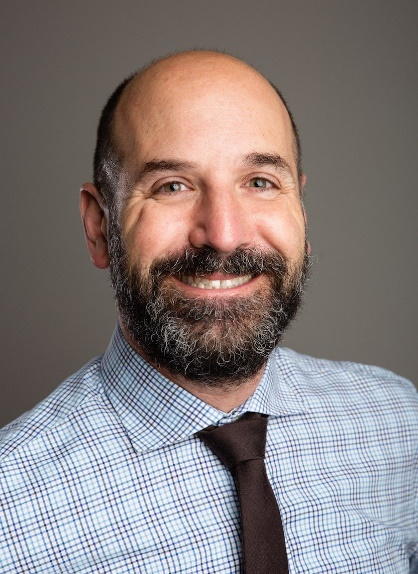 Matt Haber is a philosopher of biology at the University of Utah, which he joined in 2006 after completing his PhD at UC Davis. He has chaired the Department of Philosophy since 2015, and in 2019 introduced an interdisciplinary major in Philosophy of Science. His research is on conceptual and methodological issues in phylogenetic systematics. Joining ISHPSSB as a graduate student, he has been actively serving on committees ever since. This includes co-organizing the first off-year workshop in 2004 and co-hosting the 2011 meeting in Salt Lake City. He currently chairs the Virtual Local Organizing Committee for the 2021 Meeting.
Matt Haber is a philosopher of biology at the University of Utah, which he joined in 2006 after completing his PhD at UC Davis. He has chaired the Department of Philosophy since 2015, and in 2019 introduced an interdisciplinary major in Philosophy of Science. His research is on conceptual and methodological issues in phylogenetic systematics. Joining ISHPSSB as a graduate student, he has been actively serving on committees ever since. This includes co-organizing the first off-year workshop in 2004 and co-hosting the 2011 meeting in Salt Lake City. He currently chairs the Virtual Local Organizing Committee for the 2021 Meeting.
 Vassiliki Betty Smocovitis is Professor of the History of Science, Department of Biology and Department of History, UF Biodiversity Institute and Center for Gender, Sexualities, and Women's Studies, at the University of Florida, Gainesville, Florida, USA. Her interests center on the history, philosophy, and social study of evolutionary biology, genetics, botany, and anthropology, especially as they converge in the evolutionary synthesis. She has been both inspired and enabled by ISHPSSB since 1982 when she attended the first workshop as a beginning doctoral student at Cornell University. Since then, she has been continuously involved in the Society, and keen to serve its interests as elected officer and organizer. If elected its President, she would bring her love of interdisciplinary and multidisciplinary perspectives and forty years of institutional memory to its service as we move forward. As a recent student of migration studies, ethnicities and race in transnational contexts, and as a diaspora Greek from Egypt, educated in Canada and the United States, she would uphold our international commitments and bring even greater geopolitical inclusion and linguistic and ethnic diversity to our society. She would continue to foster a supportive environment for junior scholars, women, and people of color, and people from marginal communities with diverse cultural experiences; and she would work at growing our endowment, providing subsidies to the under-resourced, as well as for supporting meetings in affordable international settings with sustainable practices.
Vassiliki Betty Smocovitis is Professor of the History of Science, Department of Biology and Department of History, UF Biodiversity Institute and Center for Gender, Sexualities, and Women's Studies, at the University of Florida, Gainesville, Florida, USA. Her interests center on the history, philosophy, and social study of evolutionary biology, genetics, botany, and anthropology, especially as they converge in the evolutionary synthesis. She has been both inspired and enabled by ISHPSSB since 1982 when she attended the first workshop as a beginning doctoral student at Cornell University. Since then, she has been continuously involved in the Society, and keen to serve its interests as elected officer and organizer. If elected its President, she would bring her love of interdisciplinary and multidisciplinary perspectives and forty years of institutional memory to its service as we move forward. As a recent student of migration studies, ethnicities and race in transnational contexts, and as a diaspora Greek from Egypt, educated in Canada and the United States, she would uphold our international commitments and bring even greater geopolitical inclusion and linguistic and ethnic diversity to our society. She would continue to foster a supportive environment for junior scholars, women, and people of color, and people from marginal communities with diverse cultural experiences; and she would work at growing our endowment, providing subsidies to the under-resourced, as well as for supporting meetings in affordable international settings with sustainable practices.
Council (listed in alphabetical order, 3 candidates to be selected)
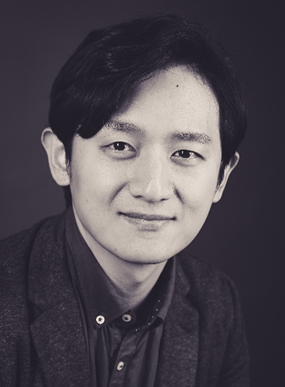 Jaehwan Hyun is an assistant professor of Science and Technology Studies at Pusan National University. He received his PhD in History of Science from Seoul National University in 2018. Jaehwan worked at the UCLA Institute of Society and Genetics (2017–2018) and the MPIWG (2018–2020). His research interest lies in the intersection of the history of biology and environmental history. Now he is working on the history of human biology and environmental sciences with a focus on transnational connections between South Korea, Japan, and the United States after World War II. He joined ISHPSSB in 2019 and enjoyed the interdisciplinarity and openness of the conference in Oslo.
Jaehwan Hyun is an assistant professor of Science and Technology Studies at Pusan National University. He received his PhD in History of Science from Seoul National University in 2018. Jaehwan worked at the UCLA Institute of Society and Genetics (2017–2018) and the MPIWG (2018–2020). His research interest lies in the intersection of the history of biology and environmental history. Now he is working on the history of human biology and environmental sciences with a focus on transnational connections between South Korea, Japan, and the United States after World War II. He joined ISHPSSB in 2019 and enjoyed the interdisciplinarity and openness of the conference in Oslo.
 Abigail Nieves Delgado is originally from Mexico. She is an assistant professor at Utrecht University. Prior to that she worked at Wageningen University, Ruhr University Bochum, and UNAM, Mexico. Her research focuses on the history and philosophy of the biosciences, including physical anthropology, ethnobiology, microbiology, and race, especially in Latin America. She aims to contribute to a more inclusive academia through topics such as decolonization, transdisciplinary knowledge production, and epistemic justice. She gave her first international talk as a PhD student at ISH in 2013, and since then she is proud to be part of such a diverse, intellectually stimulating, and friendly community. It would be a great pleasure and honor to contribute to the Society as part of the Council. (Website)
Abigail Nieves Delgado is originally from Mexico. She is an assistant professor at Utrecht University. Prior to that she worked at Wageningen University, Ruhr University Bochum, and UNAM, Mexico. Her research focuses on the history and philosophy of the biosciences, including physical anthropology, ethnobiology, microbiology, and race, especially in Latin America. She aims to contribute to a more inclusive academia through topics such as decolonization, transdisciplinary knowledge production, and epistemic justice. She gave her first international talk as a PhD student at ISH in 2013, and since then she is proud to be part of such a diverse, intellectually stimulating, and friendly community. It would be a great pleasure and honor to contribute to the Society as part of the Council. (Website)
 Maria Elice de Brzezinski Prestes is an Associate Professor at the Department of Genetics and Evolutionary Biology of the Institute of Biological Sciences of the University of São Paulo. Trained in Biology and History of Science, she specialized in eighteenth-century natural philosophy researching archives in Paris, Montreal, Bloomington, and Chicago. She published A investigação da natureza no Brasil Colônia (The Investigation of Nature in Colonial Brazil) in 2000 and co-edited Teaching Science with Context: Historical, Philosophical, and Sociological Approaches (Springer, 2018). She is editor of the online peer-reviewed open-access journal Filosofia e História da Biologia (Philosophy and History of Biology), a publication of the Brazilian Association of the Philosophy and History of Biology, ABFHiB, created in 2006. ISHPSSB certainly was one of the inspirational drivers for the creation of ABFHiB. The first ISHPSSB meeting Maria Elice attended was in Guelph, 2005. In Montpelier's ISH meeting in 2015, she had the satisfaction of getting acquainted with Werner Callebaut. Together with the co-founder of ABFHiB, Charbel El-Hani, Callebaut encouraged her to host the 2017 ISHPSSB Meeting in São Paulo. Unfortunately, Callebaut left us before he could witness his proposal carried out in Brazil.
Maria Elice de Brzezinski Prestes is an Associate Professor at the Department of Genetics and Evolutionary Biology of the Institute of Biological Sciences of the University of São Paulo. Trained in Biology and History of Science, she specialized in eighteenth-century natural philosophy researching archives in Paris, Montreal, Bloomington, and Chicago. She published A investigação da natureza no Brasil Colônia (The Investigation of Nature in Colonial Brazil) in 2000 and co-edited Teaching Science with Context: Historical, Philosophical, and Sociological Approaches (Springer, 2018). She is editor of the online peer-reviewed open-access journal Filosofia e História da Biologia (Philosophy and History of Biology), a publication of the Brazilian Association of the Philosophy and History of Biology, ABFHiB, created in 2006. ISHPSSB certainly was one of the inspirational drivers for the creation of ABFHiB. The first ISHPSSB meeting Maria Elice attended was in Guelph, 2005. In Montpelier's ISH meeting in 2015, she had the satisfaction of getting acquainted with Werner Callebaut. Together with the co-founder of ABFHiB, Charbel El-Hani, Callebaut encouraged her to host the 2017 ISHPSSB Meeting in São Paulo. Unfortunately, Callebaut left us before he could witness his proposal carried out in Brazil.
 Thomas Reydon is a philosopher of biology with primary research interests in evolutionary explanations; applications (and abuses) of evolutionary thinking in the social sciences, economics and the humanities; natural history; and classification, species concepts and natural kinds. He joined ISHPSSB in 2001, the second year of his PhD at Leiden University, and has been an active member of the society and enthusiastic participant in the biennial meetings ever since. Jobwise, he is professor at the Institute of Philosophy and the Centre for Ethics and Law in the Life Sciences (CELLS) at Leibniz University Hannover, Germany. He is also Associated Faculty in the Socially Engaged Philosophy of Science (SEPOS) group at Michigan State University and an elected Fellow of the Linnean Society of London. He is a co-founder of the German Society for Philosophy of Science (GWP), a member of the Steering Committee of the European Advanced Seminar of the Philosophy of the Life Sciences (EASPLS), Co-Editor in Chief of the Journal for General Philosophy of Science, Co-Editor in Chief of the Springer book series History, Philosophy and Theory of the Life Sciences, and a former Associate Editor of the journal Acta Biotheoretica. (Website)
Thomas Reydon is a philosopher of biology with primary research interests in evolutionary explanations; applications (and abuses) of evolutionary thinking in the social sciences, economics and the humanities; natural history; and classification, species concepts and natural kinds. He joined ISHPSSB in 2001, the second year of his PhD at Leiden University, and has been an active member of the society and enthusiastic participant in the biennial meetings ever since. Jobwise, he is professor at the Institute of Philosophy and the Centre for Ethics and Law in the Life Sciences (CELLS) at Leibniz University Hannover, Germany. He is also Associated Faculty in the Socially Engaged Philosophy of Science (SEPOS) group at Michigan State University and an elected Fellow of the Linnean Society of London. He is a co-founder of the German Society for Philosophy of Science (GWP), a member of the Steering Committee of the European Advanced Seminar of the Philosophy of the Life Sciences (EASPLS), Co-Editor in Chief of the Journal for General Philosophy of Science, Co-Editor in Chief of the Springer book series History, Philosophy and Theory of the Life Sciences, and a former Associate Editor of the journal Acta Biotheoretica. (Website)
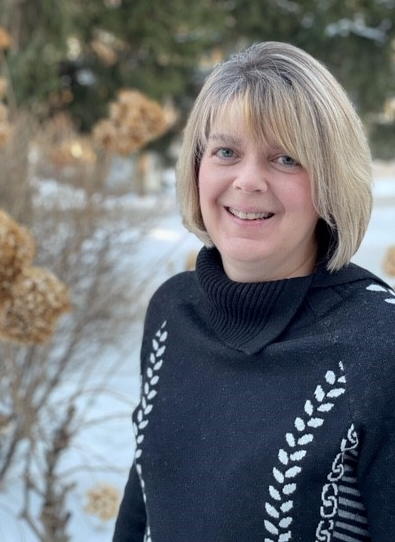 Judy Johns Schloegel is an independent scholar working near Chicago. Her research focuses on history of biology, genetics, and the environment in the US in the late nineteenth and twentieth centuries. She is preparing a book manuscript centered on the American pragmatist and geneticist Herbert Spencer Jennings, and several studies of the history of science and environment of the Great Lakes. Judy was the first recipient of the ISHPSSB Marjorie Grene Prize (1997). She serves the profession generously: she currently serves on the ISHPSSB Operations Committee and Membership Diversity Committee; she has served on the ISHPSSB Ad-hoc Respectful Behavior Committee, the ISHPSSB Nominating Committee, the ISHPSSB Program Committee, and the ISHPSSB Marjorie Grene Prize Committee. She is currently serving a four-year term as Member-at Large for the Section on History and Philosophy of Science of the American Association for the Advancement of Science. She is also currently serving on the Respectful Behavior Committee for the History of Science Society. She has served on Council and Nominating Committee for the History of Science Society and co-chaired the Women's Caucus of the History of Science Society, among other roles.
Judy Johns Schloegel is an independent scholar working near Chicago. Her research focuses on history of biology, genetics, and the environment in the US in the late nineteenth and twentieth centuries. She is preparing a book manuscript centered on the American pragmatist and geneticist Herbert Spencer Jennings, and several studies of the history of science and environment of the Great Lakes. Judy was the first recipient of the ISHPSSB Marjorie Grene Prize (1997). She serves the profession generously: she currently serves on the ISHPSSB Operations Committee and Membership Diversity Committee; she has served on the ISHPSSB Ad-hoc Respectful Behavior Committee, the ISHPSSB Nominating Committee, the ISHPSSB Program Committee, and the ISHPSSB Marjorie Grene Prize Committee. She is currently serving a four-year term as Member-at Large for the Section on History and Philosophy of Science of the American Association for the Advancement of Science. She is also currently serving on the Respectful Behavior Committee for the History of Science Society. She has served on Council and Nominating Committee for the History of Science Society and co-chaired the Women's Caucus of the History of Science Society, among other roles.
 Ana M. Soto is a theoretical and experimental biologist. She is a professor at Tufts University School of Medicine, Boston, and a Fellow at the Centre Cavaillès, Ecole Normale Supérieure, Paris (ENS). Her research interests include the control of cell proliferation, the biomechanics of morphogenesis, the developmental origins of adult disease, and theoretical and epistemological topics pertaining to biological autonomy and organization.
Ana M. Soto is a theoretical and experimental biologist. She is a professor at Tufts University School of Medicine, Boston, and a Fellow at the Centre Cavaillès, Ecole Normale Supérieure, Paris (ENS). Her research interests include the control of cell proliferation, the biomechanics of morphogenesis, the developmental origins of adult disease, and theoretical and epistemological topics pertaining to biological autonomy and organization.
In partnership with Professor Carlos Sonnenschein, she posited that the default state of cells in all organisms is proliferation and proposed the Tissue Organization Field Theory of Carcinogenesis, in which cancer is viewed as development gone awry (The Society of Cells, Bios-Springer-Verlag, 1999). As a Blaise Pascal Chair at the ENS (2013–2015), she coordinated a multidisciplinary working group devoted to the elaboration of a theory of organisms (Soto, AM, Longo, G, Noble, D, (eds.) 2016. "From the Century of the Genome to the Century of the Organism: New Theoretical Approaches." Prog. Biophys. Mol. Biol. 122:1).
She was elected a member of the prestigious Collegium Ramazzini, Carpi, Italy in 2011. She is a recipient of several honors, including the 2012 Gabbay Biotechnology & Medicine Award of Brandeis University, presented to her, Prof. Sonnenschein, and Dr. Patricia Hunt for their contributions to public health, and in 2019 she was awarded the Grand Vermeil Medal, the highest distinction from the City of Paris, for her pioneering role in the discovery of endocrine disruptors.
Since 2005 she has enthusiastically participated in the biennial ISHPSSB meetings. She has served on the Program Committee, and she looks forward to contributing to our Society's goals as a Council Member.
Program Co-Chairs
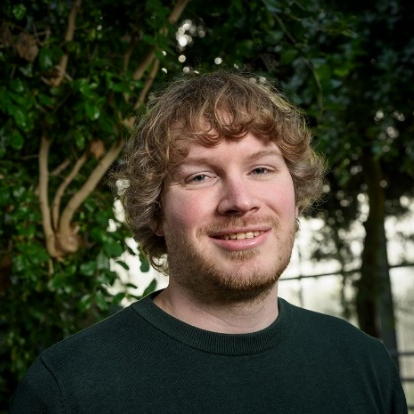 Jan Baedke is a Junior Professor at the Department of Philosophy I, Ruhr University Bochum. His research is characterized by an integrated and interdisciplinary approach to the history and philosophy of the life sciences, with a special interest in evolutionary biology, epigenetics, Evo-Devo, and microbiology. He also works on societal challenges of the biosciences and the concept of race. He recently started a research group called “ROTO” (The Return of the Organism in the Biosciences: Theoretical, Historical, and Social Dimensions). He has published in journals such as Biology & Philosophy, Journal of the History of Biology, and Studies in History and Philosophy of Science Part C. His recent book is Above the Gene, Beyond Biology: Toward a Philosophy of Epigenetics (2018). The first ISH meeting he attended as a PhD student was in 2011 in Salt Lake City, and he has been a fan ever since. (Website)
Jan Baedke is a Junior Professor at the Department of Philosophy I, Ruhr University Bochum. His research is characterized by an integrated and interdisciplinary approach to the history and philosophy of the life sciences, with a special interest in evolutionary biology, epigenetics, Evo-Devo, and microbiology. He also works on societal challenges of the biosciences and the concept of race. He recently started a research group called “ROTO” (The Return of the Organism in the Biosciences: Theoretical, Historical, and Social Dimensions). He has published in journals such as Biology & Philosophy, Journal of the History of Biology, and Studies in History and Philosophy of Science Part C. His recent book is Above the Gene, Beyond Biology: Toward a Philosophy of Epigenetics (2018). The first ISH meeting he attended as a PhD student was in 2011 in Salt Lake City, and he has been a fan ever since. (Website)
and
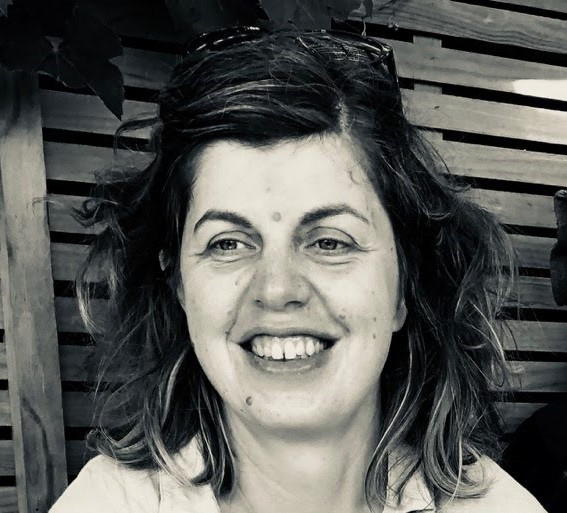 Tatjana Buklijas is a historian of biological and medical science with interests in the disciplines studying human development, reproduction, and environment, as well as in science and nationalism and in science and democratic innovation. She is currently writing a book on the history of epigenetics and editing a special issue of Studies in History and Philosophy of Science on the concept of environment in biology and medicine. She works at the University of Auckland as Senior Lecturer in Global Studies and Associate Director of Koi Tū: The Centre for Informed Futures.
Tatjana Buklijas is a historian of biological and medical science with interests in the disciplines studying human development, reproduction, and environment, as well as in science and nationalism and in science and democratic innovation. She is currently writing a book on the history of epigenetics and editing a special issue of Studies in History and Philosophy of Science on the concept of environment in biology and medicine. She works at the University of Auckland as Senior Lecturer in Global Studies and Associate Director of Koi Tū: The Centre for Informed Futures.
Secretary
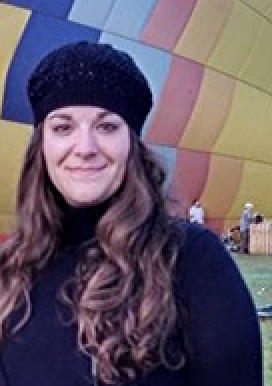 Sarah Roe is an Assistant Professor at Southern Connecticut State University. She received her PhD from the University of California, Davis under the support and supervision of Professor Roberta Millstein. Sarah is an active council member for the American Association for the Advancement of Science-Pacific Division, where she serves as chair for History and Philosophy of Science. She also serves as the junior co-chair to the Philosophy of Science Women's Caucus and is the Director of the Research Center on Values in Emerging Science and Technology. Sarah's research interests include philosophy of medicine, philosophy of biology, and science and values. Much of her current academic research, in some way, emphasizes or focuses on minority and at-risk populations. Sarah is the proud recipient of the J. Philip Smith Award for Outstanding Teaching.
Sarah Roe is an Assistant Professor at Southern Connecticut State University. She received her PhD from the University of California, Davis under the support and supervision of Professor Roberta Millstein. Sarah is an active council member for the American Association for the Advancement of Science-Pacific Division, where she serves as chair for History and Philosophy of Science. She also serves as the junior co-chair to the Philosophy of Science Women's Caucus and is the Director of the Research Center on Values in Emerging Science and Technology. Sarah's research interests include philosophy of medicine, philosophy of biology, and science and values. Much of her current academic research, in some way, emphasizes or focuses on minority and at-risk populations. Sarah is the proud recipient of the J. Philip Smith Award for Outstanding Teaching.
Treasurer (listed in alphabetical order)
 Stuart Glennan is the Harry Ice Professor of Philosophy at Butler University. His research has focused on the nature of mechanisms and causation, as well as on explanation and modeling. He is interested generally in questions about how to represent and understand the structure of multilevel biological systems and processes operating on differing scales of size and time. A twenty-year veteran of ISHPSSB, he has served on several committees and as chair of the off-year workshop committee. He brings considerable administrative experience—seven years as a department chair and 10 years as an associate dean—which he could put to use in the role of treasurer. ISH has nurtured him, as it has so many, and he would be pleased to serve the Society and its members.
Stuart Glennan is the Harry Ice Professor of Philosophy at Butler University. His research has focused on the nature of mechanisms and causation, as well as on explanation and modeling. He is interested generally in questions about how to represent and understand the structure of multilevel biological systems and processes operating on differing scales of size and time. A twenty-year veteran of ISHPSSB, he has served on several committees and as chair of the off-year workshop committee. He brings considerable administrative experience—seven years as a department chair and 10 years as an associate dean—which he could put to use in the role of treasurer. ISH has nurtured him, as it has so many, and he would be pleased to serve the Society and its members.
 Don Opitz (he/his) is Associate Professor at DePaul University, where he teaches in the School of Continuing and Professional Studies, Department of History, and LGBTQ Studies Program. His research engages science and culture in the British Empire, gender and science, and queer studies. He serves as editor-in-chief of Endeavour, editor of the topical collection “Women, Gender, and Sexuality in Biology” of the Journal of the History of Biology, and a general editor of the series Gender, Colonialism, and Science: A Cross-Culture Compendium of Primary Sources (Routledge, forthcoming). Opitz currently serves as co-chair of HSS's Committee on Diversity and Inclusion, and secretary of the Commission on Women and Gender Studies, DHST/IUHPST. He has been a member of ISHPSSB since 2005, and currently serves on its Travel Support Committee. Opitz loves numbers: prior to receiving his PhD in history of science and technology, he earned his BS in mathematics and physics.
Don Opitz (he/his) is Associate Professor at DePaul University, where he teaches in the School of Continuing and Professional Studies, Department of History, and LGBTQ Studies Program. His research engages science and culture in the British Empire, gender and science, and queer studies. He serves as editor-in-chief of Endeavour, editor of the topical collection “Women, Gender, and Sexuality in Biology” of the Journal of the History of Biology, and a general editor of the series Gender, Colonialism, and Science: A Cross-Culture Compendium of Primary Sources (Routledge, forthcoming). Opitz currently serves as co-chair of HSS's Committee on Diversity and Inclusion, and secretary of the Commission on Women and Gender Studies, DHST/IUHPST. He has been a member of ISHPSSB since 2005, and currently serves on its Travel Support Committee. Opitz loves numbers: prior to receiving his PhD in history of science and technology, he earned his BS in mathematics and physics.
Marsha Richmond
Chair of the Nominations Committee
Philosophy and Climate Science (Cambridge University Press, 2018). An Interview with Eric Winsberg, by Brian McLoone
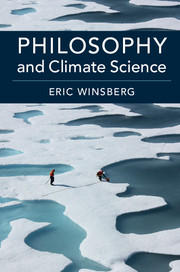 BM: You spend a great deal of time in your book discussing how climate scientists tackle the formidable task of making climate projections. What would you say to someone who has the following attitude? "Look, we know climate change is happening and that it's an existential threat. We don't really need to do any more climate projections. Those considerable intellectual resources would be better spent working toward solutions."
BM: You spend a great deal of time in your book discussing how climate scientists tackle the formidable task of making climate projections. What would you say to someone who has the following attitude? "Look, we know climate change is happening and that it's an existential threat. We don't really need to do any more climate projections. Those considerable intellectual resources would be better spent working toward solutions."
EW: I don't think I agree with this attitude. Saying that climate change is an "existential threat," while it may be true, isn't helpful enough to find solutions. Solutions are going to involve finding the right mix of mitigation, adaptation and possibly, in an extreme case, climate repair. Some of the elements of that mix might be quite costly, including costs that slow the economic development of those parts of the world where people live in poverty. But of course climate change itself is likely to severely impact the global poor. So in an ideal world, we would have the perfect information about what the costs and benefits of every possible move are. We aren't going to get that. But that doesn't mean we shouldn't be doing the very best we can to reduce the uncertainty under which policy makers have to act. It's true, of course, that not all of that uncertainty will be addressed by climate science. Much of the knowledge we will need will come from those who study energy systems and economics and other kinds of social science. But a proper appraisal of different solutions will also depend on knowing as much as we possibly can about what the world really looks like under various different emissions scenarios. And there is a lot more we would like to know about this.
BM: You have a nice critical discussion of integrated assessment models in Chapter 9, particularly in the hands of economists who use them to formulate policy. Among your criticisms is that their policy recommendations depend on the values that certain parameters in these models take, that these values are simply unknown, and that changing them even slightly can drastically alter how the model behaves. One such economist is William Nordhaus—who won the Nobel Memorial Prize in 2018. Have climate scientists dropped the ball when it comes to communicating their results to social scientists?
EW: No, I don't see that as the problem. We are simply facing an enormously complex problem where few if any people have the full set of disciplinary resources at their disposal to see the problem in all of its dimensions. It's fair to say that physical scientists are sometimes frustrated by what might seem like an inadequate appreciation, by others, of the possible consequences of climate change. But economists can point to what they see as inadequate appreciation of the complexity of the task of crafting political solutions that will actually bring about the desired changes, rather than merely creating political structures that will be subject to regulatory capture and other problems. And people who study energy systems can point to inadequate appreciation of the complexity of the problem of decarbonizing our energy and transportation systems. And so it goes. I think if there is any ball dropping, it is in the opposite direction. It's not that anyone has done a poor job of communicating their results. It's that everyone needs to be working in greater harmony and not thinking “if only everyone would listen to us we could solve this problem in a jiffy.”
BM: Toward the end of the book, you discuss issues that climate science raises for social epistemology. There you point out that papers in climate science involve many people (they are "radically distributed"), none of which contributed to or understands every component of the analysis. You then argue that in these cases there is a "group author." Can you explain why this move is necessary? Why can't we just say a bunch of individuals contributed to the paper?
EW: The argument here (which is really one that I made first with Quill R. Kukla and Bryce Huebner) is not that there is a group author, but that it would be desirable if there were a group author. We defined an “author” as someone who is accountable for the contents of an authored study or paper. So we looked at various different possible arrangements that could support the conditions for the possibility of group authorship, and found that they are very hard, if not impossible to meet, in radically distributed disciplines like climate science. How serious of a problem is this? We (and I) don't really reach any firm conclusions about this. One place in climate science where I think this does present an especially acute problem is in uncertainty quantification. As I argue in the book, probabilities in climate science are personalistic credences. And some people argue that credences are things which some individual person has to own. But given the radically distributed nature of climate science, it is unclear how we can reach that point.
Brian McLoone
Member of the Education Committee
From the Site Selection Committee
The Site Selection Committee has been hard at work drumming up bids for 2023, which has been unprecedently difficult as you might imagine. Our call necessarily envisioned a hybrid meeting (in-person and online options) and this model together with financial and other uncertainties at many institutions has made it difficult. However, we are currently negotiating a site bid that looks truly excellent so far, and look forward to sharing it with the membership. We do anticipate that our meetings may need to start to run in different ways in future, and are open to a range of possibilities. It is likely that we will establish an online way for members to feedback and ask questions before running an electronic vote, given that our Society's General Meeting will not necessarily be accessible to all due to time zones.
The membership is reminded and encouraged to make contact with the Site Selection Committee or members of the Council if they wish to start to discuss future bids (2025 and beyond): it's never too early to start planning!
Rachel Ankeny
Chair of the Site Selection Committee
From the Operations Committee
The Operations Committee will be making a series of recommendations in advance of our conference as follows: implementation plans for our Respectful Behavior Policy (adopted in Oslo in 2019) in concert with establishing policies for online meetings (drawing on Cold Spring Harbor's existing policies); formulating policy about how to handle proposals for new prizes; and considering establishing best practices around sharing information and ideas from online work-in-progress talks. We look forward to sharing these recommendations with the membership at the Society's General Meeting in July.
Rachel Ankeny, on behalf of the Operations Committee
From the Communications Committee
The Communications Committee's charge is to maintain the ISHPSSB website, successfully produce and disseminate two newsletters per year, maintain ISHPSSB Twitter and Facebook accounts/notifications, and maintain communication between ISHPSSB and members via email updates and announcements.
This year, with the transition to an online meeting format, the members of the Communications Committee have been especially busy. Materials for the upcoming 2021 meeting have been advertised and disseminated and the ISHPSSB website has been updated to inform members/visitors of the new conference format. Importantly, Communications Committee members have been active in answering questions regarding the new format and submission process throughout the last few months. Twitter and Facebook have been updated routinely to further promote the 2021 conference.
Members of the Communications Committee redeveloped the ISHPSSB “resources” webpage to include new, timely materials and enhance member interaction with the page. For instance, web resources, COVID-19 information, reading lists, and the new suggestion box are now all available to ISHPSSB members.
Sarah Roe
Chair of the Communications Committee
Studies C merges!
We are pleased to announce that as of 1 January 2021, Studies in History and Philosophy of the Biological and Biomedical Sciences (or Studies C, as we tend to call it), published by Elsevier, has merged with the other two Studies journals (A, which covered general history and philosophy of science, and B, which covered history and philosophy of physical sciences), which collectively now are known as Studies in History and Philosophy of Science.
This journal has dedicated sections and editors-in-chief (EIC) equivalent to the previously separate journal. Hence Rachel Ankeny is continuing as the EIC for manuscripts focused on biological and biomedical issues, and Sara Green has been appointed as associate editor for this section. We continue to encourage high-quality submissions representing all methodological perspectives, including history, philosophy, and social studies of biological and biomedical sciences. Studies is international in scope and content, and publishes papers from a wide range of countries and cultural traditions. We welcome proposals for special issues. In addition, the book review forum now will cover all areas of science, building on its initial setup and able oversight by Sean Valles as part of Studies C, and is being edited by Aleta Quinn. As the journal is largely published electronically, this merger does not represent a reduction in the number of manuscripts that can be accepted, nor in the total page count, but instead an opportunity to broaden readership and to further strengthen research published in this outlet which has historically been important for the ISH community.
The journal has the status of a transformative journal, which means it is a subscription/hybrid journal that is actively committed to transitioning to a fully Open Access journal, and also is gradually increasing the share of Open Access content and offsetting subscription income from payments for publishing services (to avoid double payments). For those working in systems where metrics are relevant, the merged journal assumes the metrics formerly associated with Studies A (such as impact factor and so on), which are available on the home page above.
We are working with the publisher to ensure continuity in the merger in various ways, such as continued representation of the journal in relevant indices. The editorial team and board (notably heavy in ISHPSSB member representation) look forward to additional feedback from the community if any issues arise. We thank our authors and reviewers for their patience over the last year, during which the merger, a change of online system, and of course COVID-19 related issues caused some hiccups, and look forward to receiving your manuscripts.
Rachel Ankeny
Studies C Editor-in-Chief
Credits
This newsletter was edited by David Suárez Pascal employing GNU Emacs and Scribus (both open source and freely available). I thank Greg Radick for proofreading it and to all the ISH members who kindly contributed to this issue with their texts.
Submissions for the newsletter should be addressed at:
